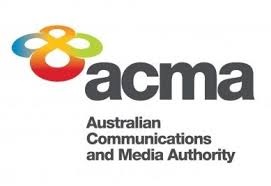 In its first year of operation, 224 telcos submitted code compliance statements to Communications Compliance (CommCom), the body set up by industry itself to encourage compliance with the new Telecommunications Consumer Protections Code 2012 (TCP Code). Under the TCP Code, telcos providing services to consumers must submit compliance statements to CommCom by 1 April each year.
In its first year of operation, 224 telcos submitted code compliance statements to Communications Compliance (CommCom), the body set up by industry itself to encourage compliance with the new Telecommunications Consumer Protections Code 2012 (TCP Code). Under the TCP Code, telcos providing services to consumers must submit compliance statements to CommCom by 1 April each year.‘Industry’s new focus on code compliance – including via CommCom – is welcome,’ said Australian Communications and Media Authority Deputy Chairman, Richard Bean.
‘The 224 companies which engaged with CommCom account for around 95 per cent of Australian consumers—that certainly suggests to me that our telcos have a new focus on the TCP Code. However, many members of the TIO scheme did not lodge compliance statements with CommCom.’
In respect of this group the ACMA made 99 TCP Code breach findings.
As a result of these findings, the ACMA has:
- directed Bytecard Pty Ltd to comply with the entire TCP Code and
- directed Sure Telecom Pty Ltd, Clear Networks Pty Ltd and iTalk (Australia) Pty Ltd to comply with those parts of the TCP Code that require providers to submit compliance statements to CommCom each year.
Each of the telcos that received a Direction to Comply had been the subject of a previous breach finding by the ACMA.
The ACMA also gave Formal Warnings to 95 telcos for failing to lodge statements with CommCom by 1 April 2013. All of these telcos had recent experience dealing with a complaint to the TIO but none had previously been the subject of a TCP Code breach finding by the ACMA.
Other TIO members which failed to lodge had no history of TIO complaints and many of them are unlikely to be bound by the TCP Code. However, the ACMA sent letters reminding them that if they are bound by the TCP Code, they need to engage with CommCom.
‘The telecommunications industry is very diverse—with a long tail of small providers,’ Richard Bean said. ‘The ACMA’s response was calibrated to recognise that many small providers may have faced practical difficulties in getting up to speed in the early days of the new TCP Code. However, it is important that these stragglers do comply with the Code. The ACMA will be expecting them to have their houses in order for next year’s CommCom compliance statements and will respond swiftly to any breaches of the TCP Code in the meantime.’
For more information please see the Q & A below or to arrange an interview, contact: Emma Rossi, Media Manager, (02) 9334 7719, 0434 652 063 or media@acma.gov.au.
Media release 76/2013 - 10 October
Questions and Answers
Q: What is CommCom? Why was it established?
A: Communications Compliance (CommCom) is a body established to oversee the new Compliance Framework set out at Chapter 9 of the TCP Code. The framework requires telcos to promote code awareness, lodge annual compliance documents, prepare and maintain a Compliance Plan.
The intention of the Code Compliance Framework is to encourage industry to take responsibility for its own compliance with the Code’s consumer protection rules.
Q: What documents does a telco need to lodge with CommCom?
A: Each telco that provides services to consumers under the TCP Code must provide two documents to CommCom by 1 April each year.
- A Customer Information Compliance Statement, which sets out where customers can access information they are obliged by the TCP Code to make publicly available. This information includes Critical Information Summaries, Financial Hardship and Complaint Handling Policies.
- A Compliance Attestation, which is a document endorsed by the CEO or other senior manager, confirming both that the telco has a Compliance Plan in place and has complied with the TCP Code. Large telcos must have this statement independently assessed.
Where a telco is unable to attest to TCP Code compliance, it is required to submit a Compliance Achievement Plan to CommCom, setting out how and when actions will be taken to ensure TCP Code compliance.
Q: What is the ACMA’s approach to non-compliance with the CommCom requirements?
A: The ACMA has taken an educative approach with TIO scheme members who have not lodged CommCom documents where the telco did not generate any complaints to the TIO over the previous 12 months. 683 firms were sent educative letters.
Of the remaining telcos:
- Formal warnings have been issued to ‘first offenders’
- Directions to Comply have been given to ‘second offenders’.
Where the ACMA finds a breach of the TCP Code, it has the power to:
- give a Formal Warning or
- give a Direction to Comply with code provisions going forward.
It cannot impose penalties. However, if a telco does not follow a Direction to Comply, the ACMA can commence proceedings in the Federal Court to recover a pecuniary penalty.
Q: In what circumstances would a TIO member not be required to lodge documents with CommCom?
A: In the absence of a telco industry licensing regime, the best guide to industry participants is the TIO Members’ Listing However, not all TIO members are bound by the TCP Code and required to lodge compliance documents with CommCom. For example, telcos that:
- offer services to small business consumers but negotiate the terms on which those services are provided
- are no longer in business but could be the subject of a complaint about past conduct or
- have been acquired by another entity, which lodged documents with CommCom on behalf of the new ‘group’.
| < Prev | Next > |
|---|




